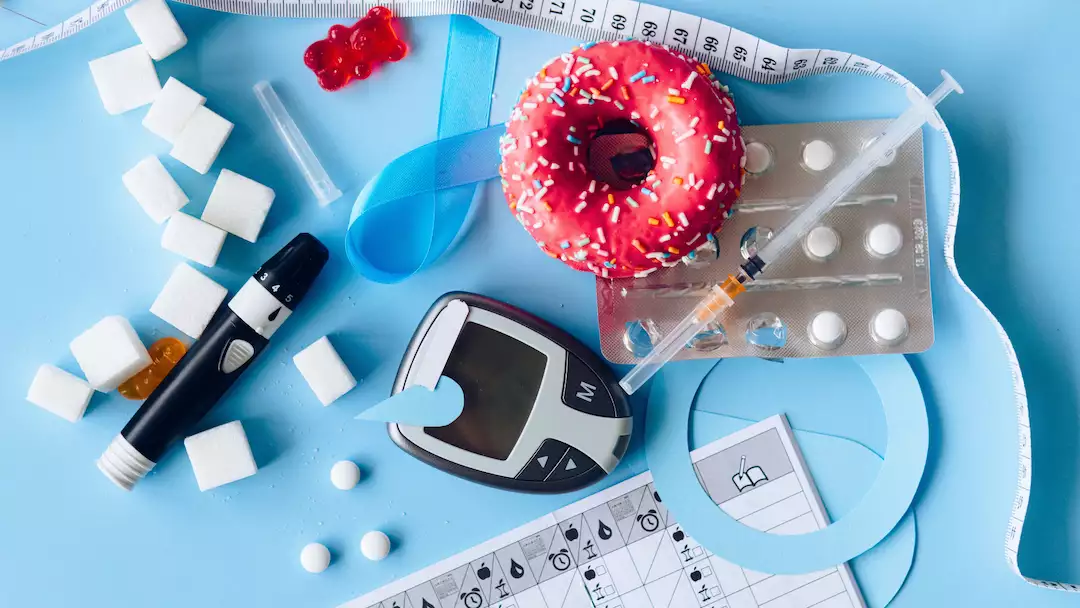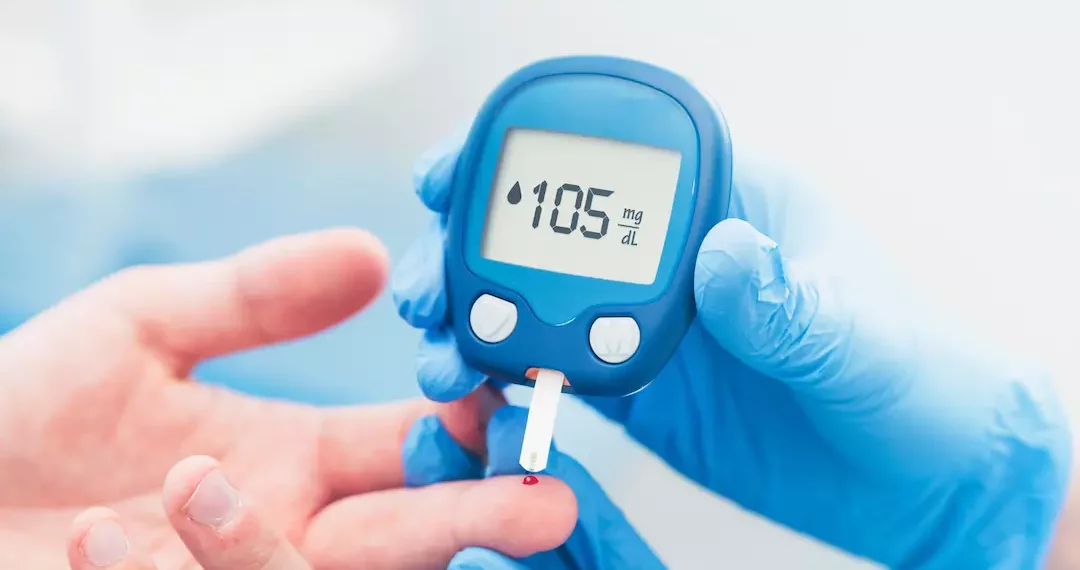In this article, we will talk about the importance of proper nutrition and exercise in managing diabetes, and how it can help keep blood sugar levels stable. We will also provide some general advice for diabetics and how to live with this disease.
New News - Health
Learn About Diabetes and its Types
Diabetes is a health condition that affects the body’s ability to convert food into energy. Millions of people around the world are infected with it, and it develops at different stages.
In this article, we will review the most prominent types of diabetes and some of the characteristics of each type.
Diabetes is not just a number on a measuring device. It is a daily challenge for many people, but with a deeper understanding of the different types of diabetes, the challenge becomes easier.
The Most Prominent Symptoms of Diabetes
There are warning signs that indicate diabetes.
Have you recently noticed any of the following symptoms?
- Feeling Excessive Thirst:
You may feel the need to drink a lot of water, even after drinking a large amount of fluids. - Abnormally Increased Hunger:
You may feel very hungry even after eating a full meal. - Increased Need to Urinate:
You may notice increased frequency of urination, especially at night. - Unexplained Weight Loss:
You may lose weight without changing your eating or exercise habits. - Fatigue and Tiredness:
You may feel constantly tired and lacking in energy. - Recurrent Bladder or Skin Infections:
You may get frequent bladder or skin infections. - Blurred Vision:
Vision may become blurry or blurred. - Slow Healing of Wounds:
Wounds may take longer to heal. - Coma in Severe Cases:
In some cases, complications of diabetes may lead to coma.
If you notice any of these symptoms, it is important to see a doctor as soon as possible. The doctor will evaluate your condition and perform the necessary tests to diagnose diabetes and determine its type and severity.
Types of Diabetes
1. Type 1 Diabetes
For these reasons, the pancreas becomes stressed and stops producing the enzyme, which is a sign of a stroke. Type 1 diabetes, commonly diagnosed in children and young adults, is an autoimmune condition in which the pancreas produces too little insulin. Or not produce it at all.
2. Type 2 Diabetes
Type 2 diabetes, which accounts for about 90-95% of all diagnosed cases of diabetes, occurs when the body becomes insulin resistant, or does not produce enough insulin. This type is more common in adults, but it can occur at any age.
3. Gestational Diabetes
Gestational diabetes, which is a temporary condition that can occur during pregnancy. It affects how your cells use sugar, and increases your risk of developing type 2 diabetes later.
4. Latent Autoimmune Diabetes of Adults (LADA)
It is often considered a subtype of type I; It develops slowly over time and is often confused with type II; Because it appears in adulthood.
5. Maturity-Onset Diabetes of The Young (MODY)
It is a rare form caused by mutations that affect the function of the pancreas; Unlike other types, it is largely influenced by genetics.
6. Diabetes Associated with Cystic Fibrosis
This unique form is caused by cystic fibrosis, which affects the pancreas’s ability to produce or use insulin effectively.
Are You Facing Type 1 Diabetes?
Lifestyle Modifications to Manage Diabetes
Lifestyle changes are an essential step for those looking for effective ways to manage diabetes. As someone with this condition, you may find that taking small, but consistent steps can make a big difference.
1. Adjust Your Diet
Nothing is more important than dietary control when managing diabetes. The key is to find a balance between the quality and quantity of what you eat.
The American Diabetes Association says:
Showing concern for food quality and using a thoughtful nutritional menu will facilitate your journey towards a better life.
Start by eliminating sugar-sweetened beverages, which can significantly raise blood sugar levels. Instead, choose water or herbal tea to maintain hydration without affecting your blood sugar levels.

2. The Importance of Physical Activity
Find out how changing your lifestyle through exercise, such as walking or swimming, makes diabetes management easier and can significantly lower your sugar levels:
Enhancing the Human Body’s Sensitivity to Insulin
During exercise, the body needs an increase in glucose consumption to produce energy, and thus the use of insulin in the body improves. This means that the body becomes more able to use insulin effectively to control blood sugar levels.
Improving Blood Sugar Levels Can be Done by Exercising Regularly
When glucose consumption increases during physical activity, blood sugar levels decrease. Exercising can also contribute to improving the body’s sensitivity to insulin.
Sports play an important role in improving the lives of diabetics in general and reducing the risk of developing complications from the disease. However, we must take into account the individual health condition and medical advice before starting any new sporting activity.
Diabetes Treatment Medications
With the development of time, we have a powerful weapon against diabetes represented by a wide range of medications. This article will discuss the most prominent of these medications and how they can help you.
1. Insulin Therapy
Insulin has a crucial role in the management of type 1 diabetes. It is used to lower blood glucose levels. The use of new versions of daily insulin has become very common.
Insulin therapy allows patients to live with and manage their blood sugar levels more accurately and easily, enhancing disease control and improving their quality of daily life.
Although new techniques have been developed to provide insulin, however, the treating physician must always be consulted before making any change in the treatment regimen to ensure the best and safest treatment.
2. Oral Medications to Lower Blood Sugar
Metformin, a thiazolidinedione drug, is one of the best options for treating diabetes. It has been the backbone of type 2 diabetes management for many years.
Metformin has been considered one of the mainstay and effective treatments for managing type 2 diabetes for many years. Metformin belongs to the thiazolidinedione class, and it works by increasing the body’s sensitivity to insulin and reducing glucose production by the liver.
In addition, metformin shows a positive effect on weight and body fat, making it a preferred choice for many patients. Thanks to its high effectiveness and relative safety, Metformin is the backbone of type 2 diabetes management and is often recommended as the first step of treatment for new diabetics.
3. Monitor and Manage Blood Sugar Levels
Controlling your blood sugar level is like driving a car on the highway, where you need to make sure everything is working in harmony to ensure a safe trip. This is an essential part of diabetes management.
The Importance of Continuous Monitoring of Diabetes
Checking the blood glucose (sugar) level is vital for diabetics. This test helps monitor blood sugar levels and understand the effect of foods, medications, and physical activity on sugar levels.
The patient can use a blood glucose meter to measure the sugar level on a regular basis and record the readings.
Based on the readings, the patient and healthcare team can analyze the results and adjust the treatment plan accordingly. This can include adjusting medication doses, lifestyle changes, and diet modifications.
The Impact of Technology on Diabetes Care
Technology has changed the game in how diabetes is managed. Thanks to continuing advances, it has become possible for people with diabetes to track their blood sugar levels and manage their condition in ways we never thought would become a reality.
Devices Used to Track Blood Sugar
One such development is the use of continuous glucose monitors. These devices are small, but very smart, and are leading to huge leaps in monitoring blood sugar levels.
Thanks to this technology, the patient can monitor his blood at any time and anywhere without having to withdraw a drop from his finger every time he wants to check his sugar level.

Treating Complications Associated with Diabetes
Facing the complications of diabetes is not a tug of war, as people with this disease need to be extremely careful and attentive. The unplanned invasion of things like heart disease, retinopathy, and nerve disorders can appear at these stages without warning.
Integrating alternative therapies into diabetes management
The trend towards using alternative therapies to treat diabetics is becoming increasingly popular. This is because it offers unconventional options capable of supporting diabetes control and improving the patient’s quality of life.
1. Nutritional Supplements
Several studies indicate that some nutritional supplements made from natural extracts and vitamins can contribute to improving blood sugar levels in diabetics.
Cinnamon is one of these extracts, as research has shown that it is able to lower blood sugar levels and improve the body’s sensitivity to insulin.
In addition, the role of magnesium is also highlighted, this mineral has a positive effect in reducing blood sugar levels and improving their stability, which makes it an important natural supplement for diabetics.
However, individuals should consult a healthcare professional before taking any supplements or making changes to their diet to ensure their safety and effectiveness in managing diabetes.
2. Herbs as Treatment
Fenugreek, according to research, appears to play an important role in improving blood sugar levels.
Research indicates that fenugreek plays an important role in improving blood sugar levels in diabetics. Fenugreek contains a group of effective plant compounds such as dietary fiber, saponins, polyphenols, and amino acids. All of which may contribute to improving blood glucose control.
The dietary fiber in fenugreek helps slow the absorption of carbohydrates, which results in blood sugar levels naturally lowering. Studies have also shown that eating fenugreek can increase the body’s sensitivity to insulin. Which contributes to improving glucose utilization and regulating blood sugar levels.
In addition, fenugreek also contains compounds that are considered antioxidants, which contribute to reducing inflammation in the body that may negatively affect blood sugar levels.
Based on this research, including fenugreek in a balanced diabetic diet is considered a positive step to improve control of blood sugar levels. However, you should consult your doctor before making any changes to your diet or taking any new nutritional supplement. Especially for diabetics who follow certain medical treatment.
Most Frequently Asked Questions about Diabetes
1. What is the best way to control diabetes?
Balanced nutrition, regular exercise, and maintaining a healthy weight are the most important steps.
2. What is the first-line treatment for diabetes?
It often starts with lifestyle modifications such as diet and physical activity before using blood sugar-lowering medications.
3. Can a type 2 diabetic live a normal life?
Yes, by managing the situation effectively and taking corrective steps in their system, they can impact their quality of life.
4. What is the treatment for advanced diabetes?
In advanced cases of diabetes, insulin therapy may be resorted to permanently, in addition to other treatments such as hormone therapy and surgery in some rare cases.
It is important that the treatment is integrated and well-controlled in cooperation with the specialist physician to control the disease and improve the patient’s quality of life.
Conclusion
Understanding diabetes treatment is the beginning of a better life. We learned how type 1, type 2 and gestational diabetes differ, emphasizing the importance of early diagnosis.
We have realized the power of proper nutrition and physical activity in managing blood sugar levels. Small investment with big return.
We discussed the role of medications such as insulin, in addition to nutritional supplements and herbs, and ways to improve the lifestyle to be healthy, such as exercise and proper nutrition. This is with the aim of maintaining stable or lowering blood sugar levels in the patient.
Early diagnosis and timely treatment of diabetes can contribute to preventing or delaying the occurrence of serious complications… Do not ignore its symptoms.
With appropriate diagnosis and treatment, you can enjoy a healthy and normal life and live with diabetes.
Medical References
Thanks for reading this story on New News Business! Share it and 📩 Subscribe to our newsletter.
Source: New New's Research




















